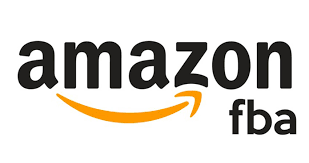Amazon FBA private label is a popular business model that allows sellers to create their own branded products and sell them on Amazon. In this article, we will explore the benefits and challenges of the Amazon FBA private label business model and provide tips for success.
What is Amazon FBA Private Label? Amazon FBA Private Label is a business model where sellers create their own branded products and sell them on Amazon. Sellers source products from manufacturers or wholesalers and then brand them with their own logo and packaging. The products are then listed on Amazon and sold to customers through the Fulfilled by Amazon (FBA) program, where Amazon handles the storage, shipping, and customer service for the products.
Benefits of Amazon FBA Private Label There are several benefits of the Amazon FBA private label business model, including:
- Higher profit margins: By creating your own branded products, you can avoid competing solely on price and instead focus on creating unique products that have higher profit margins.
- Control over the branding: With private label, you have complete control over the branding of your products, including the logo, packaging, and marketing materials. This allows you to create a unique brand identity and stand out from competitors.
- Control over the quality: With private label, you have more control over the quality of the products you sell. You can choose high-quality materials and work with manufacturers to ensure that your products meet your standards.
- Ability to create a loyal customer base: By creating a unique brand identity and offering high-quality products, you can create a loyal customer base that will continue to purchase from you and recommend your products to others.
Challenges of Amazon FBA Private Label While there are many benefits to the Amazon FBA private label business model, there are also several challenges that sellers should be aware of, including:
- Upfront costs: Creating your own branded products requires an upfront investment in inventory, branding, and marketing. This can be a significant investment for new sellers and can take time to recoup.
- Risk of failure: Creating your own branded products carries a higher risk of failure than simply reselling existing products. If your products do not sell well, you may be left with a large amount of inventory that you cannot sell.
- Need for product differentiation: In order to be successful with private label, you need to create products that are unique and differentiated from competitors. This requires research and development to identify gaps in the market and create products that meet customer needs.
Tips for Success with Amazon FBA Private Label If you are interested in pursuing the Amazon FBA private label business model, there are several tips that can help you achieve success:
- Do your research: Before investing in a private label product, it’s important to do thorough research to identify gaps in the market and ensure that there is demand for your product.
- Focus on quality: Quality is key when it comes to private label products. Work with manufacturers to ensure that your products meet your standards and invest in high-quality materials and packaging.
- Differentiate your products: In order to stand out from competitors, it’s important to create products that are unique and offer something different than what is already available on the market.
- Invest in branding and marketing: Building a strong brand identity and marketing your products effectively is crucial to success with private label. Invest in professional branding and marketing materials and take advantage of Amazon’s advertising and promotional tools.
- Monitor your competition: Keep an eye on your competitors and adjust your product offerings and pricing strategies as needed to stay competitive.
In conclusion, the Amazon FBA private label business model can be a lucrative opportunity for sellers who are willing to invest in research, development, and branding. While there are challenges and risks involved, by focusing on quality, differentiation, and branding.
